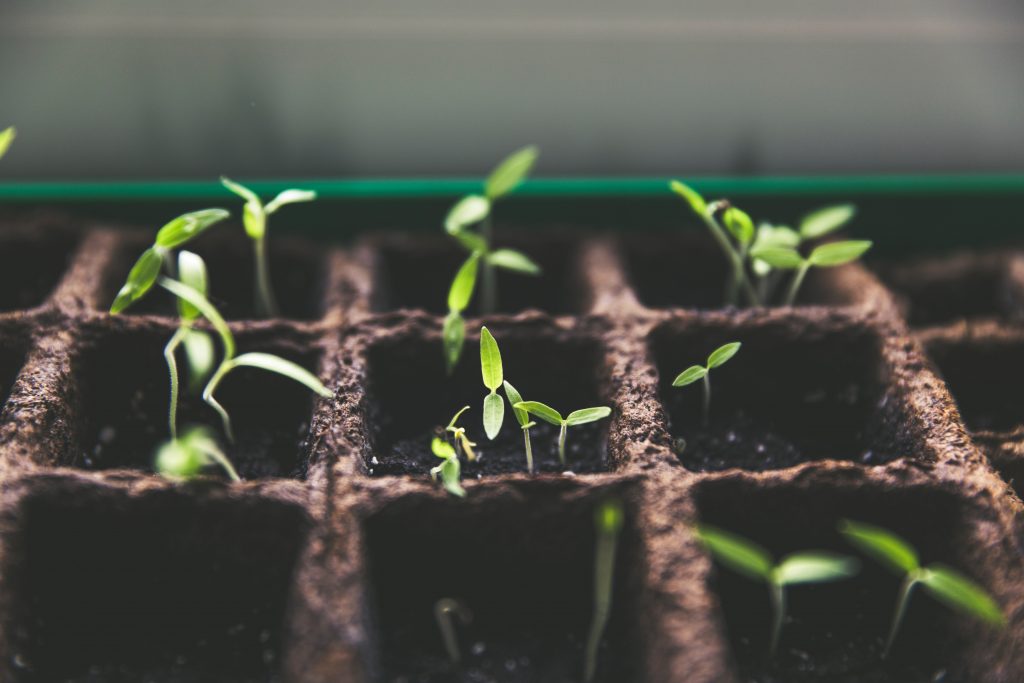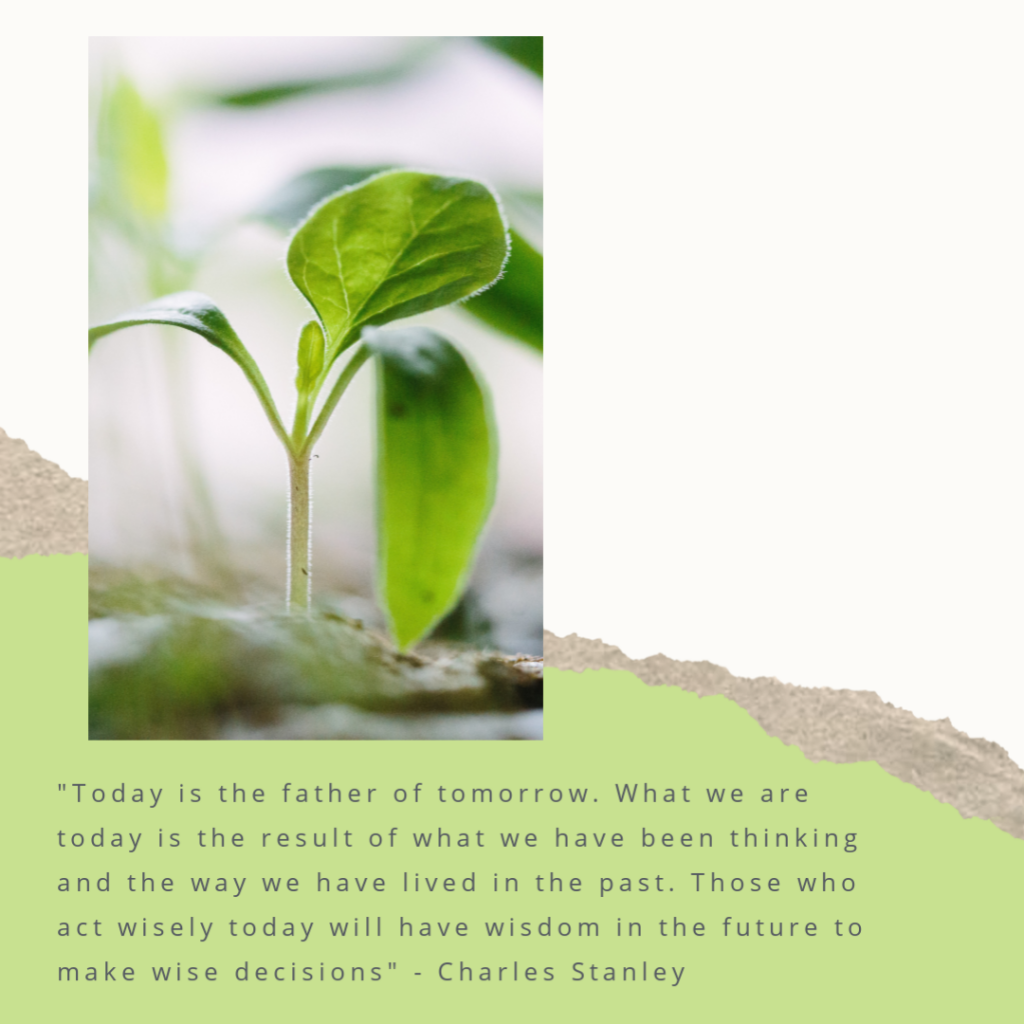Kendra Note: I wrote this post a while ago, just before coronavirus and quarantine upended life as we know it. My apologies if any of my words or ideas seem incongruous with our present circumstances. I was waiting to post until life got back to normal but as that might not be for some time, I decided to go ahead and share it now. Rereading this, it was weird to think I was writing about popping into grocery stores and restaurants just a couple of months ago. And these days, with so many people planting gardens, the farming metaphor is a tad more relevant.
The Bible dedicates quite a bit of page time to the concept of sowing and reaping. I don’t know about you, but these terms don’t regularly come up for me in my daily life. I’m not a farmer and have never even planted a garden, so the closest I come to “sowing and reaping” is planting my Amex into the credit card terminal at HEB and reaping the groceries that the helpful grocery store bagger places in my cart. However, for the agrarian society that served as the Bible’s first audience, this farming metaphor would have been as relevant as Instagram memes and Disney references are for us today.
The first hearers of Scripture’s words would have fully understood the notion that one’s harvest directly corresponds to the type and amount of seeds that are sown. No farmer ever planted apple seeds hoping they would yield potatoes, nor would a farmer expect an abundant crop to flourish from one or two planted seeds. Farmers also understand that cultivating a harvest is not something that happens overnight: it requires long-term planning, patience, a fortuitous environment, and plenty of work.

What a different world we find ourselves in today, when texting allows us to make and cancel plans instantaneously, and waiting overnight for a package delivery feels too long. We don’t need to think about what foods we will want to be harvesting several months from now, because when the time comes, we will simply run to the store to pick up dinner (or, even easier, have it delivered to our door). In a culture that prioritizes immediacy, it’s easy to neglect the big picture of our future while our minds are preoccupied with the here and now. Unfortunately, this shortsighted mentality transfers to areas of our life that DO have long-term ramifications, and it can lead to magical thinking about what may lie ahead for us.
In a recent sermon, Jordan (one of our church’s pastors) asked our congregation, “does what you’re sowing for match what you’re hoping for?” His question hit home, because there are numerous areas in my life that aren’t currently lined up to cultivate the fruit I hope to reap: from the health of my marriage and my interactions with my children, to my friendships, our financial well-being, and the way that I care for my body. I spend a lot of time perfecting these areas for today, which makes my current life feel more pleasant and manageable, but these shortsighted methods don’t bode well for the life and relationships I hope to be experiencing five, ten, or fifty years down the road.
Jordan concluded his sermon with these words: “Hope is not a strategy, but the right strategy can provide hope.” In other words, it’s not too late for me to begin strategically sowing seeds that will yield the life I hope to reap. For instance, I can prioritize quality time with Luke (even if it means sacrificing personal time) to help sustain our marriage for the long haul. . . . I can focus on true heart change (instead of nitpicking behavior) when disciplining Charleston, even though short-term consequences might seem easier. . . . I can put the work into sleep training the twins to set them up for healthier sleep habits as they get older. . . . I can limit unnecessary expenses so that we can save for things like vacations, new furniture, and our retirement. . . . I can participate in social groups that will pave the way for life-long friendships, accepting that this might mean stepping out of my comfort zone for a time. . . . I can eat more nourishing foods that will help my body function better, knowing that this might mean my body will look different (larger) than I would prefer. (This last point is admittedly the hardest for me to accept.)

Maybe you’ve already adopted the practices of sowing what you hope to reap. Perhaps you’ve done this in some areas of your life, while neglecting others. Or maybe you need to step back and take a look at all of your current habits to reevaluate whether they are strategically in line to provide the life you feel God calling you to. If, like me, you are in this third camp, perhaps you’ll join me in embracing Paul’s words to the Galatians: “And let us not grow weary of doing good, for in due season we will reap, if we do not give up.”